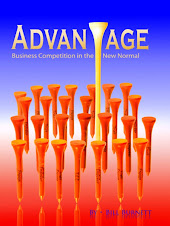A McKinsey study early this year suggested that just 33 percent of executives say their companies’ strategies rest on novel data and insights not available to competitors.
“One likely explanation: the widespread availability of information and adoption of sophisticated strategy frameworks creates an impression that “everyone knows what we know and is probably analyzing the data in the same ways we are.” Yet if strategists question their ability to see something that no one else does, they are less likely reach for the powerful insight that is most likely to differentiate them from competitors.”
This was a shocking report for me. My company Tailwind Discover Group is focussed on creating competitive advantage for small and mid-sized businesses. Competitive advantage is always based on the insight that differentiates our clients from their competitors. That is what we help companies discover, that wonderful insight which drives their differentiator. We go after the differentiator that matters most to their customers.
But the biggest shock from the McKinsey study was that:
“just 53 percent of executives characterize their companies’ strategies as emphasizing the creation of relative advantage over competitors; the rest say their strategies are better described as matching industry best practices and delivering operational imperatives—in other words, just playing along.”
In other words, more than half of all companies probably remove themselves from being our clients simply because they don’t understand what makes a business sustain. These companies are going out of business, they just don’t know it yet.






